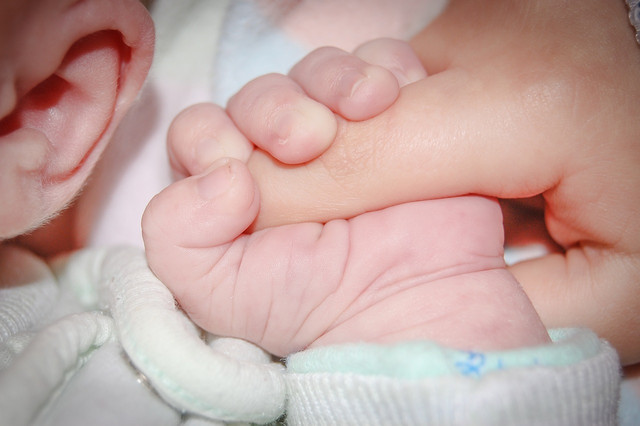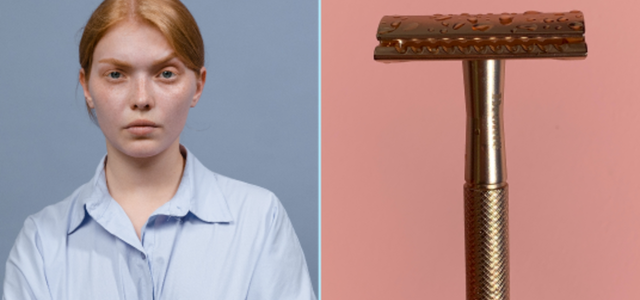While increasingly popular amongst many parents, push presents are resented by others. Why do some people hate push presents, and is the controversy warranted or a bit overdramatic?
A relatively recent idea that only popularized in the last few years, push presents are gifts given from one partner to another — or sometimes from family or friends — as a token of gratitude for going through pregnancy and labor. The name comes from the idea that the new parent pushes out the baby. They’re also commonly known as “baby mama gifts” or “baby baubles.”
It’s a bit like a baby shower gift, however more intimate and typically much more expensive. Typical push presents include diamond jewelry and designer items, for example. While many people enjoy push presents, others find them ridiculous and even sexist.
Kim Kardashian’s tweet showing off her million Dollar push present from Kanye West illustrates how luxurious this trend can be:
Why Do Push Presents?

(Foto: CC0 / Pixabay / jarmoluk)
Some people are of the mindset that pregnancy and labor is hard and they would love a present for going through it. Experts at the New York Times even say that the name “push present” comes from the idea that the birther is pushing their partner to gift them something in return.
It’s also been theorized that push presents are gaining popularity as fathers are becoming more involved in parenting. The NYT 2007 report shows that a good portion of parents want push presents: Among pregnant people, 55 percent wanted a push present, while 38 percent of new mothers received one. For these people, a push present is a token of appreciation in exchange for giving their emotions, hormones and body to their pregnancy and labor. Since then, push presents have become even more popular.
The Controversy Over Push Presents
There are many arguments against push presents as well. Many feel that push presents are unnecessary, materialistic and even offensive. The push-back against push presents has been pretty intense.
Here are some of the arguments against push presents:
The issue of liking the baby to an object
Many think push presents are unnecessary because pregnancy is a natural process and the real gift is the baby. Many feel that the focus on a gift is materialistic and silly, because in reality the best outcome is a healthy and happy child.
Adding to the materialistic argument, some people feel that push presents simply offer an opportunity for companies to commercialize a magical moment. In fact, the #pushpresent hashtag is being used by many brands who want to promote their products as just that. In 2005, the jewelry company Mayors even marketed diamond earrings saying, “she just delivered your first born; now give her twins.” Some companies even have entire registries dedicated to push presents.
Push presents being socially exclusionary
For many people, push presents are far too expensive, and a silly waste of money when there are already huge expenses to consider such as hospital bills, childcare, housing and much more, needed for raising a child. While push presents don’t have to be expensive, they typically are.
Unfortunately, push presents are more commonly received in wealthy families and celebrities. Celebrity gifts seen on social media range from a Ferrari for Kylie Jenner to diamonds for J-Lo, Beyonce and Kim K. These extravagant items are greatly glamorized, adding to the exclusionary aspect of the gift, as people with lower income feel they can’t take part.
Another argument is that push presents are sexist. Many feel uneasy at the idea of being gifted something expensive in exchange for birthing a child. Push presents can feel transactional, in a way. Some say the idea is sexist, especially because push presents are typically given by men to women.
Some also argue that push presents are exclusionary in other aspects, too. For example, because the term has the word ‘push’ in it, this suggests that those who get c-sections are not worthy of a push present. Others argue that push presents are exclusionary because they are only received by one partner.
While there are other names for push presents, the most popular term remains hurtful for many people. Even other options such as “baby mama gifts” or “new mama gift” can be exclusionary to non-binary people and others who give birth. For example, some transgender men choose to carry children.
The Takeaway



(Foto: CC0 / Pixabay / blickpixel)
While push presents can come off as exclusive and silly, they are not inherently bad. Push presents aren’t for everyone, and that’s okay. If you don’t like push presents, don’t do them. They definitely are not necessary to a happy and healthy birth. However, pregnancy, labor and postpartum are all very difficult on the mind and body. If somebody likes a gift as a token of appreciation, that’s okay too.
If you can afford a nice push present, go for it, but they don’t have to be expensive either. The point of the gift is the gesture of appreciation. This doesn’t need to be diamond earrings. A push present could be artwork, a book subscription or a spa day, for example. If you do opt for jewelry, check out some of these ethical jewelry brands.
Of course, the actual term ‘push present,’ probably needs some tweaking. As noted, not everybody who gives birth actually pushes. The term also focuses heavily on labor, when in reality, labor makes up a small fraction of the toll pregnancy takes on a person. It may be better to call it a “pregnancy present” or “new parent present,” which more accurately represent who and what the gift is for.
Whether you and your partner do this type of gift or not, what’s most important is real-life appreciation, love and support all throughout pregnancy and childcare.
Read more:
- 18 Tasty & Nutrituous Meals for Pregnant Women
- The Mental Load of Motherhood & 5 Ways Partners Can Help
- Self Care: Learning How to Take Care of Yourself
Do you like this post?









